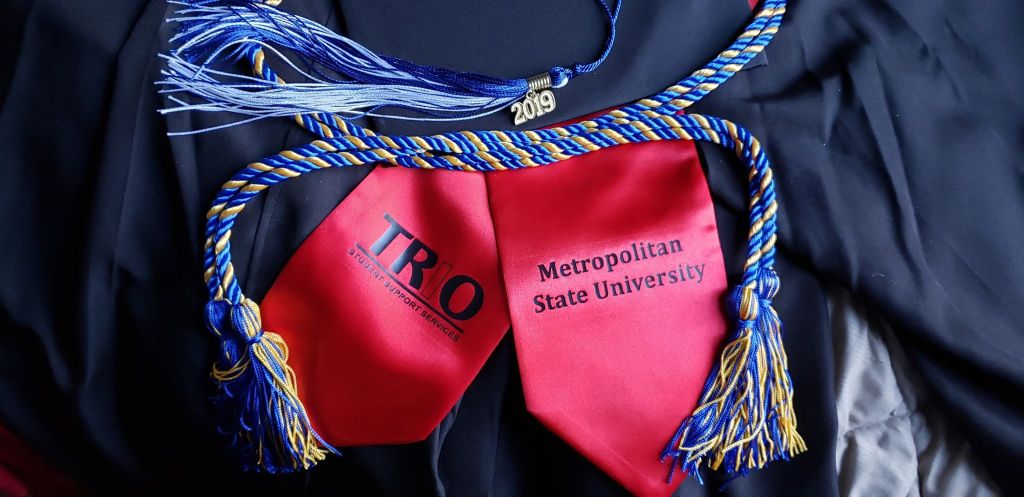December 14th was a big day. I finally walked in commencement to receive my bachelor’s degree. On the floors below us, hundreds of children competed in the state gymnastics championships. Across the street, two murdered little boys and their mother were laid to rest.

Graduation is a big accomplishment, especially for adult students. Many of us returned to school after years in the workforce or as stay at home parents. It is still a challenge for younger students fresh out of high school, especially those who are first in their families to go to college, but those of us who have established responsibilities – work, home, marriage, parenthood – bear extra burdens of stress. Those of us with disabilities carry lifetimes of stigma and psychological damage done by ongoing societal trauma. We are still largely erased or used as inspiration, which only serves to worsen our struggle. The hurt part of me still thinks there was a clerical error somewhere along the way, but the rational part knows I earned this degree and the honors that came with it. Ten years ago, I would have said I couldn’t return to school. I wasn’t smart enough, determined enough, disciplined enough. I’ve proven to myself how wrong I was. Now, I face the next steps of getting a job, seeking more publication, and eventually attending grad school. Others in my cohort won’t seek further schooling, and that’s ok, too. We reached this accomplishment together, but our paths now diverge. Despite the joyful tears my friends and I shed, despite the sense of accomplishment, the other events in such a small area highlighted just how large the world is.
As we were receiving our academic awards, nearly 300 kids from across the state met in the lower levels of the convention center to compete in the Level 3-5 Minnesota State Championships. These young people worked hard to get to their spots in this competition. They followed their passions; their parents invested time, money, and energy into supporting their children, just as our families had invested in us. Like the graduates walking across the stage above them, they all embarked on exciting beginnings after extensive hard work. Like us, they faced a sort of ending. All competitions come to an end, and the results often dictate the competitors’ next steps. The winners move up in whatever structure they have in place, everyone else either continues the athletic path or move on to other interests. They are all at the beginning of their lives and they have much exploring ahead of them.
The funeral that took place in the church across the street was for two little boys and their mother who were murdered by the mother’s ex-husband. He then shot himself. From what I’ve read, Kjersten, William, and Nelson Schladetzky were very special folks. Though I never met them, I send my condolences to their family and friends. Their lives had ended entirely too early, and on a day of such excitement for over 800 college graduates and over 200 child athletes, many others mourned. Yet, according to their obituary, the family would like memorials to them to focus on the future in the form of donations to Whittier International Elementary and Protect Minnesota. In the face of such terrible loss, hope continues to shine brightly.
This was a lesson in the simultaneous enormity of a moment and how tiny we each are in the greater world. We work hard to achieve our goals, and in the face of our successes, there will always be failure. We earn our accomplishments, and we deserve to revel in them, but at the same time, there will always be loss and failure. Be it birth or death, winning or losing, passing or failing, we are all in this world together. Even if it’s only in passing, we affect each other in some shape or form. We will each experience our wins, our losses, and, more than likely, suffer the ongoing grief of losing people we love. In our celebrations, remember compassion and gratitude for everyone who has supported us along the way.



